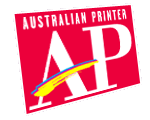On March 3, the European Timber Regulations (EUTR) come into force, making placing illegal or timber products into European Union markets will be a criminal offence.
Any organisation that might be affected by the EUTR must put in place procedures that guarantee the legal sourcing of the timber products they trade, including paper and board which may account for around 50 per cent of the world’s timber production.
The EUTR’s requirements have been broadly welcomed by print buyers who want to reduce their environmental impact. International companies who want to be sure that raw materials come from legal sources can now rely on an internationally relevant law that ensures verification. The law is widely expected to level the playing field for wood based products, making compliance a technical rather than an ethical choice. This is both a good and a bad thing. Good in that environmental laws are coming into being and bad for the same reason: we would prefer to see the graphic arts and printing industry regulate themselves.
Participants in the pulp and paper supply chain must now decide what they should be doing to mitigate risks that raw materials destined for European markets, might come from illegal sources. So the entire supply chain has a burden of responsibility, but that responsibility is a cooperative one. The cooperative includes any company involved in the supply of paper based products that wants to do business in Europe.
Verification that companies comply with EUTR will generally come from a recognised monitoring organisation. This is generally a national body with jurisdiction in a specific country. They will be interested not just in whether timber products are legally sourced, but also that operators have a robust due diligence system in place to make sure that illegal paper and board products cannot reach the European market. This is an important part of the EUTR. Traders should be able to identify supplier links throughout their supply chains and also be able to share information across those links.
From an environmental perspective the EUTR is a positive step, however for printing companies supplying services for European customers it requires compliance which might not be straightforward. The EUTR does provide an answer to the egregious abuse of the world’s forests. But it is also an example of how regulation eventually comes to industrial sectors that do not take care of their environmental responsibilities on their own.
– Laurel Brunner
This blog is yours to use if you want, as long as you fully credit the Verdigris supporters who make it possible: Agfa Graphics (www.agfa.com), Digital Dots (www.digitaldots.org), drupa (www.drupa.com), EFI (www.efi.com), Fespa (www.fespa.com), Heidelberg (www.uk.heidelberg.com), HP (www.hp.com), Kodak (www.kodak.com/go/sustainability), Pragati Offset (www.pragati.com), Ricoh (www.ricoh.com), Unity Publishing (http://unity-publishing.co.uk) and Xeikon (www.xeikon.com) and the Printer Magazines Group (i-grafix.com).







